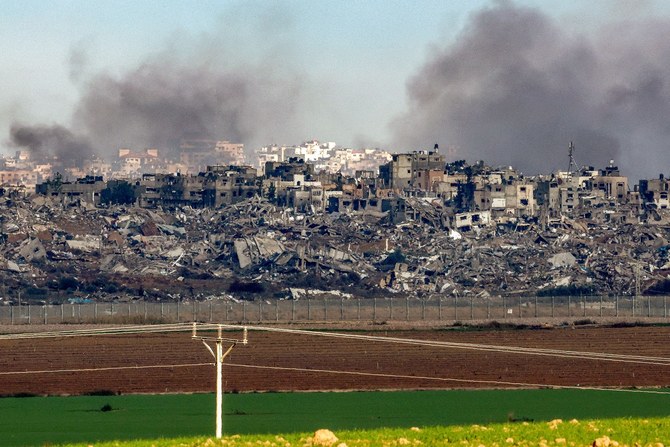THE HAGUE: The International Court of Justice will hold hearings this week on a case brought by South Africa accusing Israel of genocide in the Gaza war and seeking an emergency suspension of its military campaign.
What is the ICJ?
The ICJ, also called the World Court, is the highest United Nations legal body, established in 1945 to deal with disputes between states. It should not be confused with the treaty-based International Criminal Court, also in The Hague, which handles war crimes cases against individuals.
The ICJ’s 15-judge panel — which will be expanded by an additional judge from each side in the Israel case — deals with border disputes and increasingly cases brought by states accusing others of breaking UN treaty obligations.
Both South Africa and Israel are signatories to the 1948 Genocide Convention which gives the ICJ the jurisdiction to rule on disputes over the treaty.
All states that signed the Genocide Convention are obliged not only not to commit genocide, but also to prevent and punish it. The treaty defines genocide as “acts committed with intent to destroy, in whole or in part, a national, ethnical, racial or religious group.”
What is South Africa’s case?
In its 84-page filing South Africa says that by killing Palestinians in Gaza, causing them serious mental and bodily harm and by creating conditions on life “calculated to bring about their physical destruction,” Israel is committing genocide against them.
“The acts are all attributable to Israel, which has failed to prevent genocide and is committing genocide in manifest violation of the Genocide Convention,” the filing says, adding that Israel also failed to curb incitement to genocide by its own officials in violation of the convention.

Israeli soldiers gather with their vehicles at a position on the border with the Gaza Strip on January 7 (AFP)
What is Israel’s response?
Israel has called the claim baseless and a government spokesman accused South Africa of “absurd blood libel” or baseless allegations of Jewish perfidy intended to stir up lethal hatred of Jews.
Israel said it will be in court to present its case next week.
What will happen at the hearings?
The hearings will take place on Jan 11 and 12.
The request for emergency measures is a first step in a case that will take several years to complete. Provisional measures are meant as a kind of restraining order to prevent a dispute from getting worse while the court looks at the full case.
Judges at the ICJ often grant such measures, which generally consist of asking a state to refrain from any action that could aggravate the legal dispute.
For provisional measures the court only has to decide if at first glance, or prima facie, it would have jurisdiction and the acts complained of could fall within the scope of the genocide treaty. Any measures it decides would not necessarily be those requested by the complainant.
South Africa has asked the court to order Israel to suspend its military actions in Gaza, to stop any genocidal acts or take reasonable measures to prevent genocide and issue regular reports to the ICJ about such measures.
The ICJ’s rulings are final and without appeal, but it has no way of enforcing them. A ruling against Israel could hurt its international reputation and set legal precedent.

A displaced Palestinian man reacts as he sits among objects salvaged from a house that was used as a shelter by his extended family members, many of whom were reported killed (AFP)
How long will it be until a final ruling ?
If the court finds it has prima facie jurisdiction, the case will move forward at the ornate Peace Palace in The Hague — even if the judges decide against emergency measures.
Israel would then get another chance to argue the court has no legal grounds to look at South Africa’s claim and to file a so-called preliminary objection — which can only touch on issues of jurisdiction. If the court rejects that objection, the judges could finally look at the case in further public hearings.
It is not unusual for several years to pass between the initial claim and the actual hearing of the case on its merits.


























